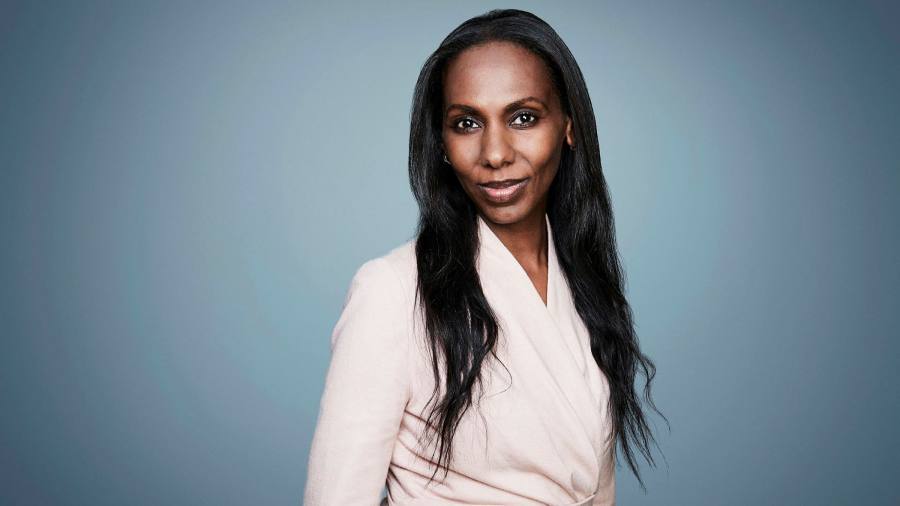[ad_1]
The legacy of any revolution is unfortunately, and inherently, one of disappointment. The passion and poetry of resistance will give way to the necessities of pragmatism and the realities of compromise — and that is if you are lucky.Â
In Sudan, that rude awakening has come in many forms. The presence of former President Omar Al-Bashir’s army inspector, General Abdel Fattah Burhan, at the head of the Transitional Sovereign Council (TSC) was not likely to fill the protesters’ hearts with joy, but it was seen as tolerable.Â
The presence, though, of Lt Gen Mohamed Hamdan Dagalo, aka Hemeti, in the number-two slot in the TSC, in spite of the fact that his troops were not only credibly accused of human rights violations in Darfur but also of involvement in the June 3Â 2019 massacre of protesters at the sit-in site in Khartoum, was a deep blow.Â
Add to that the fact that almost two years on, there have been no credible prosecutions for the June 3 massacre, which occurred after Bashir was forced to step down as Sudan’s leader, and it all starts to feel a little hollow for many activists.Â

There is also a deep sense of abandonment; that a world which once cheered them on stood by as Sudan, still without a working parliament, was forced by the Trump administration to agree a normalisation deal with Israel. That was in spite of the fact that Sudanese law demands the legislative body ratify international agreements.Â
The deal did open the way for Sudan’s removal from the US state sponsors of terrorism list, which will eventually allow the country to secure debt relief and access to global lending mechanisms. But for many Sudanese it is an unpopular move, which at one point looked likely to trigger anti-government protests, further destabilising the country.Â
That experience left many Sudanese with a sense of hurt. A sense they and their country had been held hostage to a geopolitical calculus that assigned to them very little worth.
Sudanese friends and family members asked me whether Sudan’s shaky democratic transition was really so irrelevant in the global scheme of things. Do our nascent freedoms mean so little to the world that they can be risked in order to secure the outgoing US president some sense of legacy?Â
These were not Islamists — who, by and large, are people who are anti-Israel on principle. These were people who worried that what remained of Bashir’s Islamists and their fundamentalist allies could use this move to foment anti-government sentiment.Â
Many would argue that this was the Trump administration being the Trump administration — a chauvinistic and self-interested entity — but it plays into a larger discourse in Sudan.
Where is the help the world once promised? The response for many Sudanese seems to be: “OK then, we will just do it ourselvesâ€.Â
The world stood largely silent after the first iteration of the TSC included few women, even though it was women who led and organised many of the marches. Women’s rights activists lobbied until they were heard.
They similarly worked to suspend public morality laws and wrest a long sought-after commitment to end child marriage and female genital mutilation. They are the same activists who spent the holy month of Ramadan fasting peacefully in searing heat at a sit-in site in Khartoum. They are the same activists who continue to demand prosecutions for the June 3 massacre.
In spite of the risks involved in agitating against Hemeti, one of the most powerful and wealthy men in the country, they continue to call for credible prosecution of former regime officials, and to demand justice for the blood spilled by Bashir in his three-decade rule.
The disappointment is still there. In Africa, Sudan’s inflation rate is second only to Zimbabwe’s, and its devastated economy has been burdened further by a spillover of refugees from Ethiopia’s Tigray region into the east. The fuel queues, water and bread shortages are not what people hoped would unfold when they took to the streets in their millions two years ago.Â
Disappointment and heartbreak for those who were lost — those are the legacies of this revolution. But the bigger lesson? Persistence. The same persistence that kept the protests peaceful and steadfast in the face of Bashir’s forces, with their bullets and brutality. This is the persistence fuelling the activists who continue the fight to be heard, to continue the fight to shape Sudan’s future.
Will they succeed? We cannot know that yet but, despite the odds, they continue to hope and fight.
The writer is a Sudanese journalist and senior international correspondent
at CNN.
Â
[ad_2]
Source link





